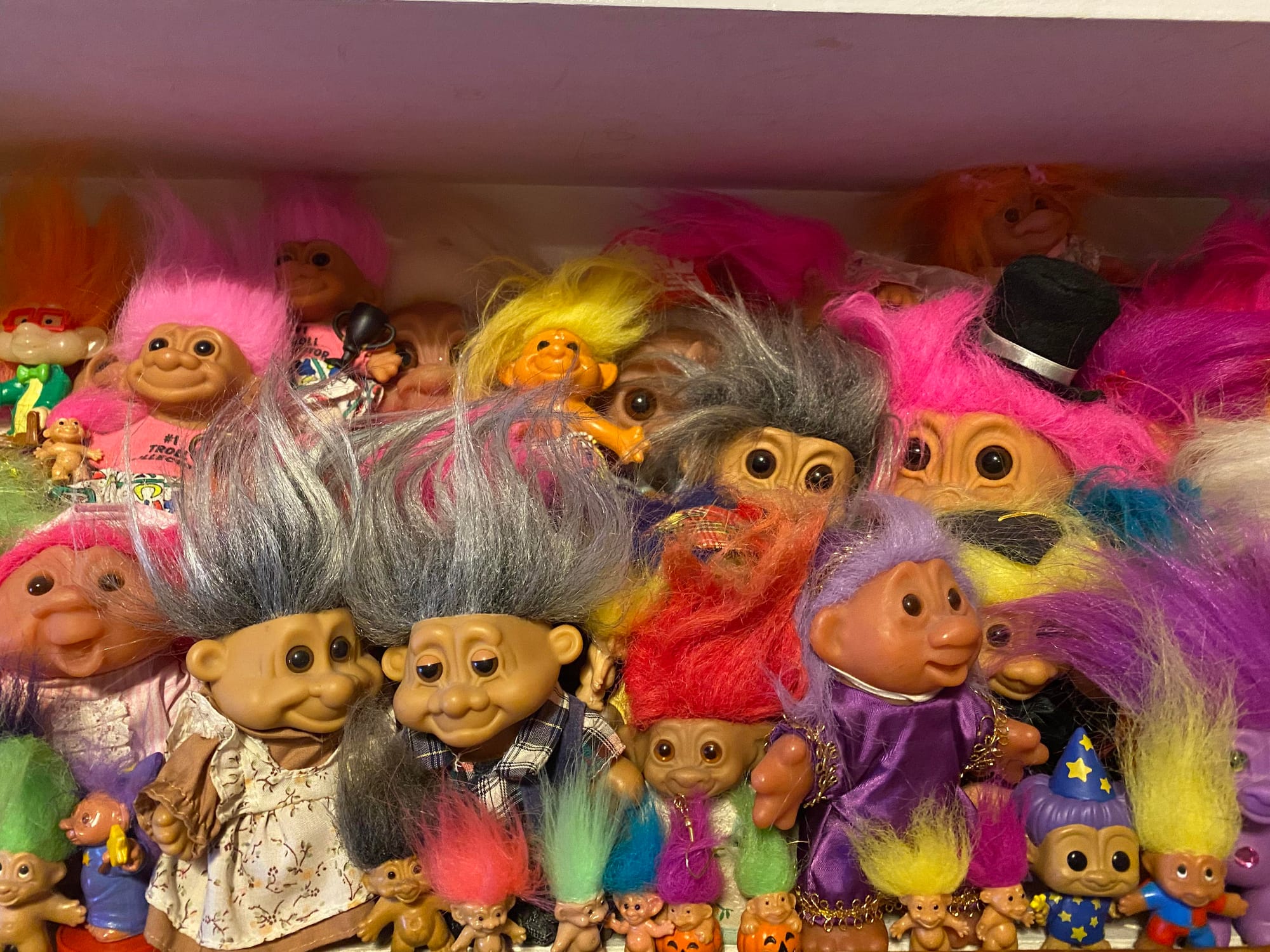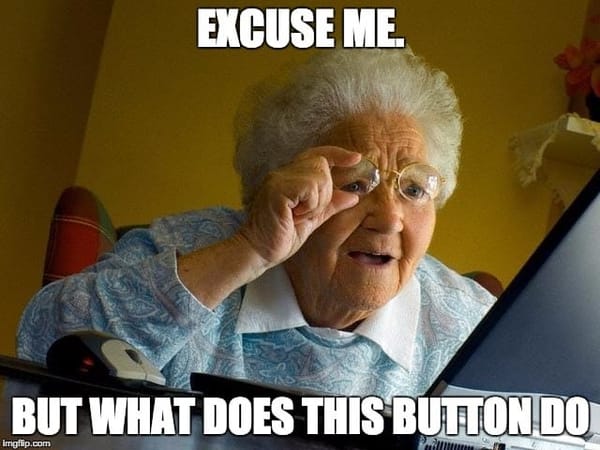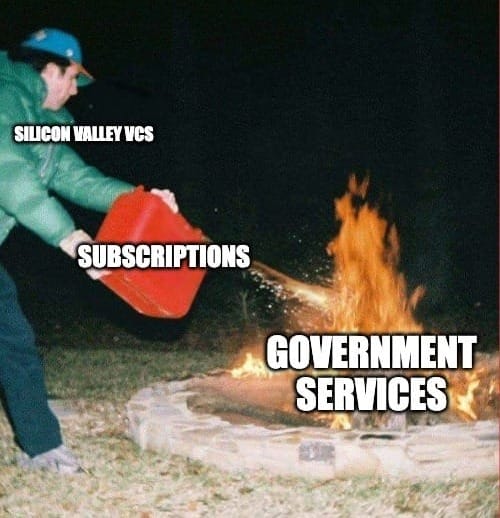Feeling Class-y

Language is notoriously unreliable because language can betray us.
Words can have dual meanings, implied subtext, or suffer from ‘semantic drift’ over time where a secondary meaning all but subsumes the original definition of what a word meant - i.e., “He’s quite gay,” originally meant that someone was quite happy, and semantically drifted over time to the mean that someone is quite a homosexual.
The betrayal of language is usually accidental.
Like if someone yells, “Duck!” at you while you are located by the side of a lake, you might look off towards the water expecting to see a waterfowl while simultaneously getting brained in the head by a bad toss from a nearby ultimate frisbee game. Although this example is mostly your own fault for being anywhere proximate to someone who enjoys ultimate frisbee.
If you ask a friend how they are doing over text, and they reply, “I’m fine,” and actually mean that they are in fact fine, you might assume that they are in fact very far from fine due to the curtness of their reply, when its more likely that they are using Apple Intelligence, whose auto-reply suggestions border on objectively rude 99% of the time.
But language's betrayal can also be intentional, when those with power systematically manipulate language to render entire linguistic concepts as moot within public consciousness.
Consider the term ‘fake news,’ which originated within the Hillary Clinton campaign in 2016 as a response to Donald Trump's lies and exaggerations. The term was almost immediately co-opted and repeated ad nauseam by Trump and his media-savvy lieutenants as a catch-all attack and dismissal of anything that didn't fit within the ideology of their political project.

The same phenomenon occurred beginning in 2020 with ‘woke,’ a term originating within the Black community as a communal warning. To ‘stay woke’ meant remaining alert to both obvious and subtle threats to one's person or property, primarily those stemming from state-sanctioned violence. ‘Woke’ was a term of black solidarity that was co-opted by the Right as yet another catch-all attack and dismissal of anything contrary to their cultural project in order to advantage their political project.
This ‘I-know-you-are-but-what-am-I’-ass strategy works really well, and those examples are forms of both semantic drift, and also of another linguistic phenomenon called semantic satiation.
Sit for the next 90 seconds and continuously repeat the word “banana” aloud to yourself and you will understand how semantic satiation causes a word to lose all meaning through over-repetition. Go ahead, I’ll wait.
While repeating "banana" over and over again might only make you sound like a hangry toddler demanding breakfast at 5 am, the stakes are far higher when the words being semantically satiated and drifted are words which define political economic relations.
The process here involves a word being repeated so many times that it loses its original meaning entirely through semantic satiation, and then semantically drifts to a new intended meaning that is completely detached from its original definition— as directed by the actor performing the repetition and redefinition.
Language can be intentionally debased to purposefully and nefariously change meaning, completely by stripping away original definitions and context, and consequently, eliminating power.
This brings us to a word which has been ritualistically reconstituted as an almost exclusively rhetorical pejorative: Marxism.
Marxism began as a conceptual framework for critically analyzing the political economy of Marx's era. It critiqued earlier political economists like Adam Smith and David Ricardo who viewed capitalist markets as a natural phenomenon—the "invisible hand," etc.—while introducing the concept of class struggle. This struggle specifically addressed the conflict between capital who own the means of production and the surplus value that capital extracts from labor within a capitalist economy.
In essence, a Marxist critique illuminates the extractive and dominating material conditions workers face under capitalism—and because it exposes those realities, it inherently threatens the power structures of global capital.
Since the Cold War, and to a lesser extent, prior to it, capital has endlessly and cynically attached Marxism to disparate concepts and capitalist-critical or oppositional political ideologies like authoritarian communism in the USSR and China, dictatorial socialism, and even truly unrelated forms of political organization like fascism. This was done to create a negative connotation for any potential critique of economic power structures within capitalist society, spreading a kind of mass historical amnesia about what Marxism actually was. Consequently, this powerful form of critical analysis of capitalism was stripped of its power until it was neither critical nor an analysis.
It's like confiscating knives from every sushi chef on Earth because knives can be used by serial killers for stabbing—and then wondering why every sushi restaurant now only serves you a whole unprepared fish.

Actual "Marxism"—the performance of critical analysis by workers examining the material conditions imposed on them by capital and their subsequent exercise of class solidarity for better pay, benefits, or working conditions—instead becomes perceived as an insidious plot to destroy the Western way of life, to eliminate all personal freedoms and individual identities, and to raise up the “undeserving and lazy” in opposition to hard work and meritocracy.
And so a word of power becomes a word of fear.
Marxism as a catch-all accusation was repeated so many times that it became semantically satiated, making it pliable for semantic drift. It was transformed into a meaningless word that acted as a stand-in for literally anything the average Westerner might conceivably fear (which seems to be mostly non-White people). Through this meaninglessness, it drifted and became fully detached from any power it once had in suggesting the critical analysis of the relationship between capital and labor—analysis that needs to be undertaken at scale to effect any change in the system it critiques.
The only people and institutions who benefit from erasing labor class solidarity—derived from Marxist critical analysis of capitalism—are those who make up the capital class that labor would be organizing against.
While some analysis may still exist, and it may be critical, it isn't the widespread critical analysis of capital that urgently needs to occur, especially in our current historical moment.
Instead of class solidarity, we now face near total class ignorance.
On the Left, intersectionality has arisen as a new form of "solidarity," divorced from the concept of extractive labor. Economic class solidarity has become merely a tertiary consideration after racial, ethnic, sexual, or religious identity-based solidarity. This has provoked internecine competition over whose trauma is greater and who has suffered more persecution in order to determine which identity is most immediately deserving of justice for both actual and perceived historic wrongs.
While racism, ethnocentrism, sexism, and religious persecution obviously exist, and this approach has united smaller individual identities under slightly larger umbrella identities, it has fractured Leftist class solidarity into numerous divided, ineffectual, and classically liberal fragments, rather than forging one massive unified political bloc with genuine class solidarity and power.
The Left has created an identity-based non-class solidarity system so complex that it’s like trying to assemble a 1,000 piece Lego set with just a picture, no instructions, and with a Danish troll periodically hiding pieces when you aren’t looking — it’s technically possible to do, but it’s needlessly difficult and will collapse at the first sign of any real pressure. And yes, trolls originated in Denmark, I looked it up.

On the Right, the shattering of Leftist class solidarity into isolated identity-based solidarity has proven to be a tremendous boon. Without a Left capable of coherently articulating any meaningful path to class solidarity—or even offering a coherent definition—and with the replacement of a classically defined Marxist Left by a confused Liberal elite who seemingly only knows how to frantically gesture and advocate for expanding LGBTQ+ acronyms, the Right has successfully implemented its own nationalist solidarity. This Right-wing version of solidarity is mostly white and Christian, but now also encompasses much of the labor class the Left has traditionally represented, including many of the minorities that the Liberal elite claim to champion.
And it's been easy for the Right to do this. They merely needed to sit back, watch, and then collect the pieces of disappointed, leaderless, and directionless victims of morally sound but strategically misguided identity politics.
Snatching defeat from the jaws of victory, the establishment Liberal leadership has surrendered to the carefully manufactured fear of any Marxist critical analysis of capitalism—lest they be labeled Marxists themselves.
The Right has designed the perfect trap for any class solidarity that could coalesce under favorable conditions by manipulating the Left into taking staunchly non-economic, identity-based positions that can easily be turned against them—an engineered false vision of a pure meritocracy, free of all class interrogation. A society where any time their voting bloc sees a Black airline pilot or a transgender person in a university, they can safely assume those people don't deserve to be there. This reinforces the idea that it's not actually a billionaire representative of capital randomly deciding what programs to cut and who to fire, but rather "those people who don't look like you"—whom the Left has supposedly brought in to replace you based on identity alone. The Right simply points at immigrants and says “theytookourjobs” instead of pointing at the CEO of a Fortune 500 company earning the more than the GDP of a small country who outsourced all of their labor to Southeast Asia.

Capital doesn’t actually care about endless debates over which bathrooms are usable and by whom—as long as those debates don’t raise questions about why capital’s toilets are private and gold plated with Japanese bidets while yours doesn’t flush and has been out of toilet paper since the Great Financial Crisis.
While the Left certainly should not celebrate any loss of existing personal rights or the failure to expand the rights of individually wronged identity classes, particularly minorities, the Left also cannot fall into the obvious trap that has been laid for them which continually invites them to kneel in kente cloth in front of Congress.

Marxism as a principle within the political class in particular has withered and died because to speak it is to now invite misinformed, confused, or cynical attack—like inviting a political Nosferatu over the threshold of your Congressional office to hypnotize you and drink your blood.
This redefinition of Marxism has had a profound and lasting effect on the universe of political possibility in America. When any critical analysis of economic power becomes automatically and pejoratively "Marxist," it enables rapid attack and dismissal without further engagement—a now meaningless word that is imbued with whatever meaning the speaker implies. Want to suggest that all workers deserve affordable healthcare? Congratulations, you are now some sort of a hybrid Hannibal Lecter/Joseph Stalin-monster, and Fox News will dedicate weeks of coverage to how you feast on starving children with some fava beans and a nice chianti.

It's hardly coincidental that economic inequality has reached historically unprecedented levels during the same period when the definition of "Marxism" expanded, shifted, and perverted into a generic political epithet rather than an ideological framing device. The world's richest man isn't buying Twitter—an app that had previously organized mass class solidarity protests—and renaming it X merely just because he enjoys Pepe The Frog memes. The narrowing of acceptable critical analysis of capital directly serves those who benefit from concentrated wealth and the economic power it grants them.
If you can't see why capital would be interested in fracturing labor as a class into tinier, more manageable parts—fighting each other about identity rather than fighting against capital—perhaps you should read Sun Tzu instead of Marx. The predator always breaks up the herd to have a better chance at catching the prey.
While labor argues about which words are acceptable and which ones are not, capital moves from buying private islands to buying entire nations.
It's been particularly galling to watch traditionally Leftist individual creative industries like filmmakers and musicians attempt to exercise a form of class solidarity in recent years, but with no reference whatsoever to a greater class struggle—again, lest they be called Marxists—that could have brought more people on board for their example of class struggle and potentially given them more leverage. Musicians in particular seem to be guilty of this most often, arguing not for greater class solidarity of all labor against all capital, but only for creative labor (artists) against music capital (record labels and streaming platforms)—Rage Against the Machine obviously excepted. Chappell Roan and James Blake aren't wrong, but to their detriment, they also aren't keying into the bigger picture.
Consider this: Which approach would generate broader public support?
A) Publicly demanding affordable healthcare and better royalties for performing artists in the music industry; or
B) Demanding these same benefits for artists while simultaneously highlighting that workers across all industries need affordable healthcare and better wages—thus acknowledging artists' struggles as just one manifestation of a larger systemic problem affecting society as a whole?
Marxism isn't a dirty word; Americans were merely tricked into forgetting what it actually meant. The representatives of capital, who don't want their power questioned, carefully orchestrated this linguistic perversion. But as they have consolidated seemingly endless cultural, political, and economic power, they've also created an increasing number of Americans who—if awakened to class consciousness and solidarity—could severely curtail that power. Capital doesn’t actually lose sleep over proper pronoun usage, but they will lose sleep over unionization.
This is not a call to revolution, but rather a call to awareness—a plea for the dissemination of the necessary Marxist critical analysis that is conspicuously absent from virtually all of today's political commentary across the ideological spectrum. The senior Senator from Vermont is far too old to be the only prominent voice in America preaching a Marxist re-awakening. He deserves a nap and to eat some soup.
Class over identity. Solidarity over division.
Without re-forging class solidarity, there is no hope of regaining the power to solve the other myriad problems of the global polycrisis, which will definitely continue if we don't, and only might continue if we do.



